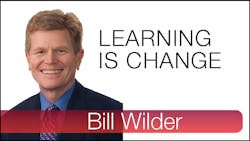Communities of Practice and Change Management: Part 3
In my last two posts, we looked at communities of practice and how they can help enterprises become more change-agile. Today I’m going to finish this three-part series of posts on CoPs by sharing some best practices for setting up and maintaining them.
In modern companies, change-management-oriented CoPs often emerge when the company first begins to adopt change management processes across the enterprise. For example, an international communications company started its CoP when its leadership development group began training change management leaders.
Today, CoPs are often initiated from above, where traditionally they grew organically, “from the ground up.” We’ve found a few key ideas to be best practices for setting up thriving CoPs.
Find a Sponsor. As with change management initiatives in general, sponsorship is key. People are more likely to join a group that has the visible support of corporate leadership. Ideally, the sponsor will also help the CoP get the resources it needs.
Define the Purpose. CoPs can only help their organizations if their domain, or area of expertise, matches up with the organization’s business goals. Take time up front to define, as specifically as possible, the purpose of the CoP.
For change management CoPs, assessing the organization’s change management maturity can really help define the group’s purpose. A tool like Prosci’s Change Management Maturity Model (CMMM) audit tool is ideal for this.
Define the Role of Corporate Leadership. Try to determine up front how involved the company’s leadership will be in setting up and running the CoP. What financial and technical resources will you need? Will members be invited or required to participate? Even if you change the answers later, start somewhere and be specific.
Get the Right People. Having a strong leader or coordinator is a key to success for a CoP. This person is not the same as the sponsor, but should be a skilled communicator with a vision for the CoP. In choosing who to invite (or require) to participate, you can interview potential members and find out what the issues are. Members should be encouraged to take ownership of the CoP once it’s established.
Secure the Needed Technology. Many modern CoPs have members in dispersed locations. As the scope and structure of your CoP develops, think carefully about how best to set up knowledge exchange, storage, and retrieval systems, as well as ways for members to communicate. Ideally, the CoP’s sponsor will help getting the resources needed for these functions.
Create a charter. At the first meeting, develop a charter that defines the community’s purpose, structure, membership and roles, administration and governance, and schedule. Some charters are very detailed and others are looser.
Developing a community of practice for change management takes time, commitment, and resources. But the benefits are well worth it. How could you begin to use some of these ideas toward creating a more change-agile organization?
About the Author
Bill Wilder
Founder and Director
Bill Wilder, MEd, is the founder and director of the Life Cycle Institute, the learning, leadership and change management practice at Life Cycle Engineering (www.LCE.com). The Institute integrates the science of learning and the science of change management to help organizations produce results through behavior change.
Bill led the creation of the 3A learning process that incorporates the concepts of active learning and change management. He has worked with many organizations to develop learning and change management solutions that engage people and drive accountability for behavior changes that deliver results.
Bill is a certified Prosci Change Management professional and is one of the few Prosci Authorized Training Provider Certified instructors in the world. He is the author of several articles, white papers and videos on the topics of learning and change management.
